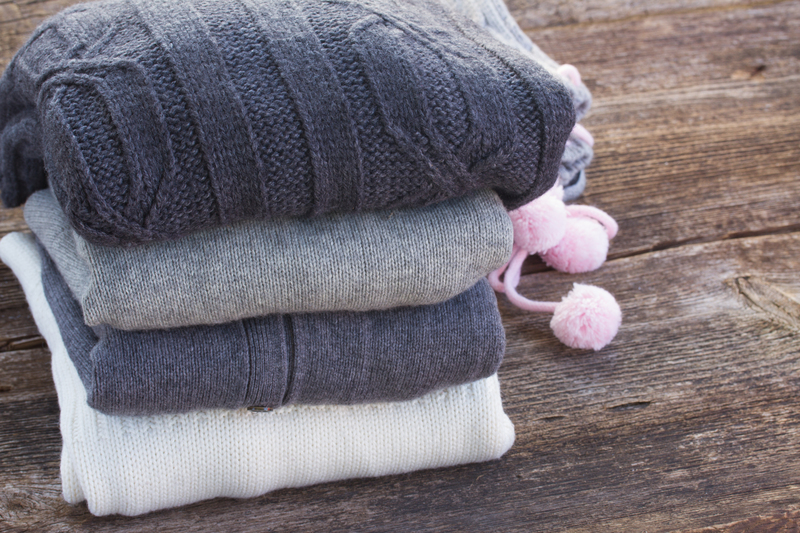Everyday Actions for a Waste-Free Household
Reducing household waste is no longer just an eco-trend--it's become an essential lifestyle choice for those who care about our planet's future. Embracing a waste-free home not only decreases landfill contributions but also leads to a healthier, more mindful way of living. This comprehensive guide explores various daily actions to achieve a zero-waste household, helping you transform your home, habits, and outlook for the benefit of both your family and the environment.
Why Aim for a Waste-Free Household?
In our fast-paced society, convenience often leads to a mountain of disposable products. From single-use plastics to incessant packaging waste, the modern home can unintentionally become a hub for trash. However, working towards a zero-waste home offers significant benefits:
- Environmental Preservation: Less waste means reduced landfill usage, fewer greenhouse gases, and less plastic reaching the oceans.
- Savings: Buying less, reusing more, and making practical swaps reduce household expenses over time.
- Health: Cutting disposable and processed goods from your life often leads to healthier eating and living.
- Community Impact: Sustainable lifestyles inspire neighbors and friends, creating a ripple of positive change.

Simple Everyday Habits for a Waste-Free Home
Transitioning to a waste-conscious household does not require perfection overnight. Instead, it involves adopting small, sustainable choices each day. Here are actionable steps you can integrate into daily life:
1. Master the 5 R's of Zero Waste
The foundation for living waste-free at home revolves around the 5 R's:
- Refuse what you don't need (promotional items, excess packaging).
- Reduce what you use (buy in bulk, choose quality over quantity).
- Reuse before you replace (opt for reusable products, repair broken items).
- Recycle smartly (know your local recycling rules).
- Rot organic waste (compost food scraps and yard trimmings).
2. Start With a Waste Audit
An effective way to pave the journey to a zero-waste household is to understand your current waste patterns. Keep track of everything you throw away for a week. Identify which items show up most--often disposable packaging, food waste, or single-use plastic. Your audit will highlight where to focus your efforts for maximum impact.
3. Switch to Reusable Alternatives
- Shopping bags: Carry cloth totes or sturdy baskets to stores and markets.
- Produce bags: Use mesh or fabric produce bags instead of plastic ones.
- Containers: Store leftovers and pantry items in glass jars, stainless containers, or BPA-free options.
- Beverage bottles & coffee cups: Bring reusable water bottles and mugs wherever you go.
- Food wraps: Try beeswax wraps or silicone lids instead of single-use plastics.
4. Shop Strategically for Less Waste
Grocery shopping is one of the main sources of household waste, but a few tweaks can make a significant difference:
- Buy in bulk: Oats, rice, beans, nuts, and other staples can be bought package-free or in large formats.
- Choose minimally packaged goods: Opt for glass, paper, or other recyclable packaging over plastic.
- Bring your own: Use refillable containers for meat, cheese, and deli products where allowed.
- Shop local: Farmers' markets and co-ops often use less packaging than chain supermarkets.
- Plan meals: Reduce food waste by shopping only for what you need and using up existing ingredients first.
5. Compost Organic Waste
Food scraps and yard debris make up a substantial portion of household trash. Home composting is a powerful tool for a waste-free home. Here's how to begin:
- Choose your method: Indoor (vermicomposting with worms), outdoor bins, or pile systems.
- Collect scraps: Fruit and vegetable peelings, coffee grounds, eggshells, and yard clippings all belong in the compost.
- Avoid: Meat, dairy, and oily foods (which can attract pests).
- Use the compost: Feed your houseplants, garden, or donate to a community project.
Areas of Focus for a Waste-Free Household
Kitchen
- Bulk shopping: Purchase pantry staples in bulk using your own containers.
- Cloth towels & napkins: Replace paper towels with washable cloth versions.
- No disposable plates or cutlery: Stick with reusables for all meals and gatherings.
- Homemade cleaning agents: Make your own cleaners from natural ingredients like vinegar and baking soda.
- Label and organize: Keep a clear inventory to minimize food spoilage and waste.
Bathroom
- Bar soaps & shampoos: Eliminate plastic bottles by switching to solid cleansing bars.
- Reusable razors: Invest in a quality safety razor with replaceable blades.
- Menstrual products: Try menstrual cups, cloth pads, or period underwear instead of disposables.
- Refillables: Choose refill stations for items like shampoo, lotion, and toothpaste tablets.
- Compostable floss & brushes: Bamboo toothbrushes and silk dental floss break down naturally.
Laundry Room
- Detergent swaps: Buy powdered detergent in cardboard or refill containers, or use soap nuts.
- Drying: Air-dry clothing when possible and avoid dryer sheets--switch to reusable dryer balls.
- Stain removers: Homemade remedies like baking soda, vinegar, and lemon eliminate the need for chemical products.
Living Room and Office
- Digital bills: Opt for paperless billing and subscriptions.
- Secondhand and upcycled furniture: Seek out vintage, refurbished, or DIY pieces.
- Minimalist decor: Keep only what you need and love, reducing impulse buys and clutter.
- Donate: Give away unwanted books, toys, and gadgets instead of discarding them.
Additional Tips for Achieving a Waste-Free Household
- Repair and mend: Patch clothes, fix appliances, and learn basic repairs instead of replacing broken items.
- Swap and share: Join local swap groups for clothes, toys, and home goods. Borrow tools and equipment rather than buying new.
- Mindful gifting: Give experiences, homemade goods, or quality, sustainable products as presents.
- Rethink pet care: Make your own pet treats, use compostable waste bags, and choose durable toys.
- Educate household members: Get your family and roommates involved with regular discussions and shared goals.
Innovative Solutions for Waste-Free Living
In addition to classic strategies, consider modern options for a waste-free home:
- Refill shops: Many cities now feature stores dedicated to refillable products, reducing packaging waste dramatically.
- App-based sharing: Platforms help neighborhoods share tools, appliances, and other infrequently used items.
- Sustainable delivery services: Choose local companies that offer zero-waste or returnable packaging.
- Smart recycling: Use dedicated recycling apps to stay updated on proper sorting and local rules.
Overcoming Common Obstacles to a Zero-Waste Household
Anyone embarking on the path to a waste-free household may encounter challenges--from lack of convenient options to resistance from family members. Here are tips to stay on track:
- Start slow: Focus on one habit or room at a time, and let momentum build naturally.
- Be prepared: Keep a zero-waste kit (reusable bags, containers, cutlery) with you for outings.
- Celebrate wins: Recognize milestones to stay motivated.
- Be patient: Not everything can be changed overnight, but every step counts toward the larger goal.
- Connect: Join online zero-waste communities for advice, inspiration, and support.

Eco-Conscious Purchasing Power
Employ your consumer choices to drive positive change. Supporting companies and brands that prioritize sustainability, offer package-free products, and take responsibility for their environmental footprint helps grow the market for waste-free alternatives.
- Read labels: Choose products with minimal, recyclable, or compostable packaging.
- Support local: This usually means less transport, less packaging, and stronger communities.
- Ask questions: Encourage stores and brands to reduce their own waste and offer more sustainable choices.
The Zero-Waste Mindset: More Than Just Trash
Transforming your household into a waste-free home isn't only about what you discard--it's about mindful living. Making intentional choices, valuing quality over quantity, and seeking out experiences over things leads to less waste and a richer life.
Remember, progress is more important than perfection. Every effort--from switching to bar soap to composting carrot peels--adds up. The journey toward a zero-waste household benefits not just you, but your family, community, and the planet.
Conclusion: Building a Legacy of Sustainability
Adopting everyday actions for a waste-free household isn't just about reducing garbage; it's about cultivating habits that enrich your life and protect the environment for generations to come. Start small, celebrate your successes, and share your journey--your choices inspire others, amplifying the positive impact.
- Practice the 5 R's daily.
- Switch to reusable and compostable products wherever possible.
- Engage your family and community in the pursuit of a zero-waste home.
The journey to a waste-free home is ongoing and rewarding. Start today and make every action count for a cleaner, greener tomorrow!